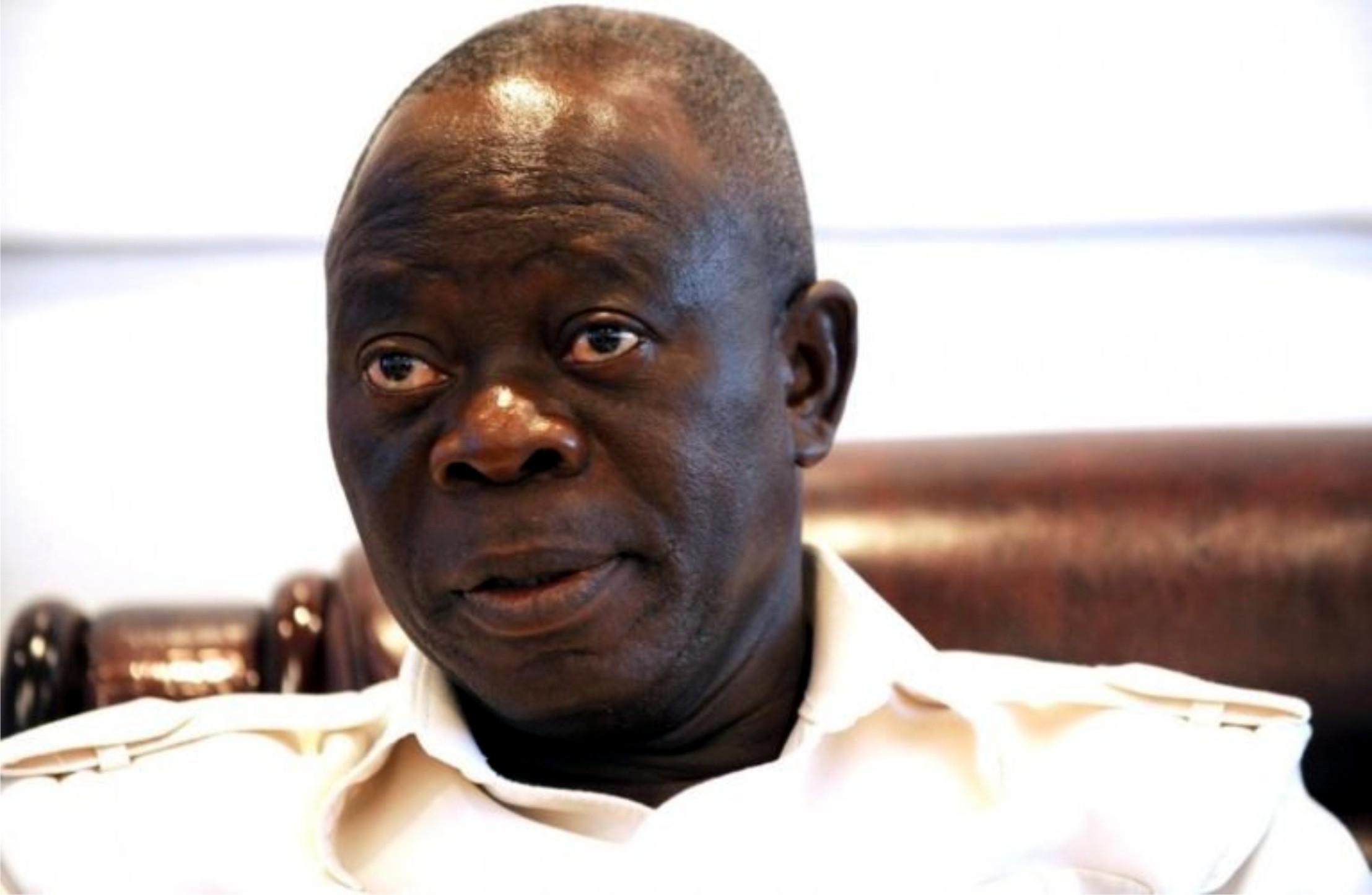Editorial
Oshiomhole’s Reckless Outburst

Last Thursday, the Supreme Court of Nigeria sacked David Lyon of the All Progressives Congress (APC) as the governor-elect of Bayelsa State and asked the Independent National Electoral Commission (INEC) to immediately issue a certificate of return to the candidate of the party with the highest number of votes and required constitutional spread as the winner of the November 16, 2019 gubernatorial poll.
The Justice Mary Odili-led panel of the apex court gave the ruling based on the inconsistency of the name of the APC deputy governorship candidate, Biobarakuma Degi-Eremienyo, in the certificates he presented to INEC before the election and for which a lower court had earlier disqualified him.
INEC had declared Mr. Lyon as winner of the governorship contest with 352,552 votes while Senator Duoye Diri of the Peoples Democratic Party (PDP) came far second with 143,172 votes.
But the Supreme Court’s judgement did not go down well with the APC National Chairman, Adams Oshiomhole, who while addressing the press shortly after the ruling declared that nobody should be sworn in as the new governor of Bayelsa State on Friday when the eight-year tenure of Hon. Seriake Dickson would have ended.
He said that the nation’s apex court ought to have borrowed a similar case in which it nullified the election of governor-elect Adamu Muazu of Bauchi State in 1999.
Oshiomhole also claimed the fact that Senator Diri’s votes did not meet the geographical spread required for him to be sworn in as governor.
“If the Supreme Court has ruled that David Lyon cannot now be sworn in as the person who has the highest number of votes and the spread to be sworn in, it simply means from tomorrow there will be no government in Bayelsa State.
“From the facts available to us and in due consultation with our lawyers, it is clear that no candidate meets the requirements of the Supreme Court which means no one can be sworn in legally tomorrow unless there is deliberate attempt to abuse the legal process,” he boasted.
The Tide thinks that Mr. Oshiomhole’s outburst was rather reckless as it had the capacity to provoke mass rampage in Bayelsa. In fact, we believe that his utterances were responsible for the attacks by suspected APC protesters who destroyed the private residences of the erstwhile Governor of the State, Seriake Dickson, and his successor, Duoye Diri. Part of the PDP secretariat was also burnt while the state-owned FM station, Radio Bayelsa, was also reported to have been attacked, all leading to the imposition of a dusk-to-dawn curfew by the police in the state.
As a former labour leader in the country and two-term Governor of Edo State, Oshiomhole should have been more mature and circumspect in his choice of words. To say that the decision of the highest court in the land cannot and should not be executed is simply a call for anarchy.
Oshiomhole was once the beneficiary of a Supreme Court verdict and, as is now popular with the Nigerian political class, he must have then seen the apex court as ‘the last hope of the common man’.
Indeed, Nigerian politicians seem to have this trait of hailing court decisions when such favour them while criticising or rejecting judicial pronouncements which do not serve their interests.
While we sympathise with the APC chairman over his party’s shocking loss at the Supreme Court, we see his latest attempt at political grandstanding as being pushed a little overboard.
The candidate of the party with the highest vote and spread, Senator Diri of the PDP, was sworn-in on Friday contrary to Oshiomhole’s ranting. And until the same court reverses that judgement, there is absolutely nothing he can do in this matter.
We equally condemn the unwarranted attempt by Oshiomhole to drag the Rivers State Governor, Chief Nyesom Wike into the verdict of the Supreme Court. Like a true sportsman, he should learn to fight another day when failure comes knocking.
Oshiomhole should tread with caution. Being the national chairman of a ruling party calls for maturity and strategic thinking. Other chieftains of his party who spoke on the apex court’s pronouncement demonstrated more maturity by asking members to remain calm while the party decides the next line of action. That is always the position of statesmen across party lines. And that is what was expected from the embattled APC Chairman.
Editorial
Resolve Rumuwoji Market Issues, Others

Editorial
As NDG Ends Season 2

Editorial
Beginning A New Dawn At RSNC

-

 Politics4 days ago
Politics4 days agoSenate Urges Tinubu To Sack CAC Boss
-

 News4 days ago
News4 days agoAmend Constitution To Accommodate State Police, Tinubu Tells Senators
-

 News4 days ago
News4 days agoDisu Takes Over As New IGP …Declares Total War On Corruption, Impunity
-
Business4 days ago
Crisis Response: EU-project Delivers New Vet. Clinic To Katsina Govt.
-
Business4 days ago
President Tinubu Approves Extension Ban On Raw Shea Nut Export
-
Business4 days ago
President Tinubu Extends Raw Shea Nuts Export Ban To 2027
-
Business4 days ago
Fidelity Bank To Empower Women With Sustainable Entrepreneurship Skills, HAP2.0
-
Sports4 days ago
NDG: Rivers Coach Appeal To NDDC In Talent Discovery

